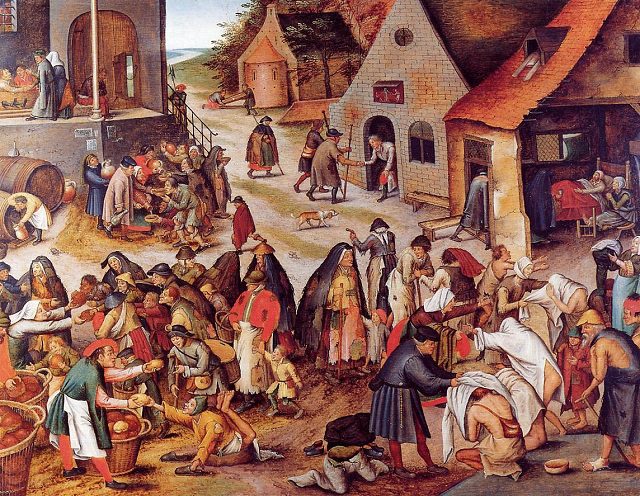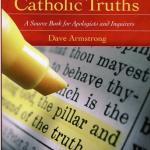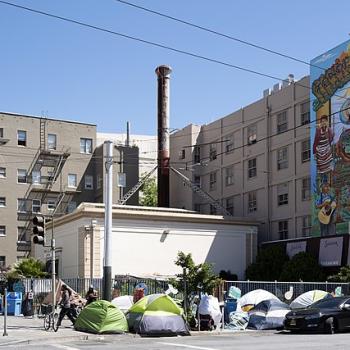
[initially a reaction to criticisms made by those of various political persuasions, on my Facebook page]
The Catholic Church is not officially pacifist (i.e., opposed to all wars or use of lethal force whatsoever, for any reason). It acknowledges the God-given prerogative of states to bear the sword (CCC #2308) and details the criteria of just war (2309-2310). Of course we try to avoid war, as we are strongly urged by the Church to do (2308, 2327). But it’s not always possible in an evil world.
Thus, Catholics can’t argue that support for any war effort whatever is intrinsically contrary to Catholic social teaching. Good Catholics and honest, informed men can differ in good faith on particulars regarding armed conflict. Catholics are allowed to argue for war in particular instances, according to just war criteria — war is not intrinsically evil in every case.
Taking out Iran’s nuclear plant, for example, is not intrinsically evil at all. It is the opposition to quite possible mass murder and annihilation of cities: a measure that is quite agreeable with Catholic teaching. It’s not targeting populations, but rather, nuclear power plants (which is not the same as exploding a nuclear bomb over a city).
Some political critics of mine claim that I write with little or no knowledge of Catholic social teaching. This is sheer nonsense. I have, for example, written extensively on the evil of our nuclear bombing of Japan. This raised such a fuss that I actually lost a friend over it, and he uttered more bitter, slanderous words against me (all in public) than even the most virulent anti-Catholic Protestants ever have. I’ve also critiqued other immoral actions in World War II, such as carpet bombing of cities.
I have written publicly that the United States is the wickedest nation in world history due to abortion: hardly a typical conservative perspective. And I first stated that shortly after 9-11, and said that this could possibly be the beginning of judgment for the US. I caught tremendous hell for that. In other words, I am not guilty of the Americanist heresy of (among other things) glorifying America over against the Church. I’m not “more American than Catholic,” or “more politically conservative than Catholic.”
I have written about a Catholic “third way” that is ultimately neither conservative nor liberal.
I’ve critiqued corporate capitalism in no uncertain terms and have stated that I like distributism [I publicly stated that I was a distributist a year and nine months after this paper] and subsidiarity. I have severely critiqued libertarianism, that is often rampant in conservative circles, as a quite insufficiently Catholic political philosophy. I have argued for progressive almsgiving (i.e., rich people give a lot more, by percentage) rather than a straight 10% rate (“tithing”).
I’ve written a lot about the great evil of racism, and condemned it in no uncertain terms.
I’ve outlined the nuanced Catholic perspective on illegal immigration.
I oppose the death penalty, except in the very worst case scenarios, such as terrorism or mass murderers [In December 2017 I announced that I was persuaded to be against the death penalty in all cases]
Many of these things are not “conservative” emphases at all, or at least not prominent “talking points.”
We can disagree in good faith without the condescending descriptions of each others’ views. I was with an old Baptist friend of mine on New Year’s Day who is a democratic socialist in politics. We get along fine. We have respect for each other. I have homosexual friends, atheist friends, Muslim friends, tons of Protestant friends, people of all kinds of political persuasions and ethnic groups. I get along with anyone. I allow any viewpoint to be expressed on my Facebook page or my blog, as long as it is charitable and civil.
I don’t claim to be any sort of expert at all on Catholic social teaching. I have many other things that I am far more focused on, as an apologist (doctrinal and theological, rather than social). I readily grant that many Catholics know a lot more than I do about it in very many particulars.
What I take strong exception to, however, is the claim that I am rejecting Catholic social teaching (or am grossly ignorant of it altogether) simply because I take what are regarded as “conservative” views on some issues (I would classify it as “progressive conservatism”), such as broad foreign policy and ways to improve the lot of the poor and underprivileged. Not true at all . . .
And arguably, sometimes such critics can be said to be (at least in some respects) “more politically liberal than Catholic.” Certainly, those who vote for pro-abortion politicians (given a choice of a pro-lifer) are acting in such a manner in that respect.
***
Related Reading:
Random Thoughts on Catholic Social Teaching [3-13-09]
Dialogue: Conservatives & “Old” Pro-Lifers & the Poor [10-3-16]
This “Conservative” is Very Passionate About Social Justice [8-31-17]
Robert F. Kennedy & How Democrats Used to Be [6-7-18]
***
(originally 1-3-12)
Photo credit: The Seven Acts of Charity, by Pieter Brueghel the Younger (1564-1638) [public domain / Wikimedia Commons]
***













